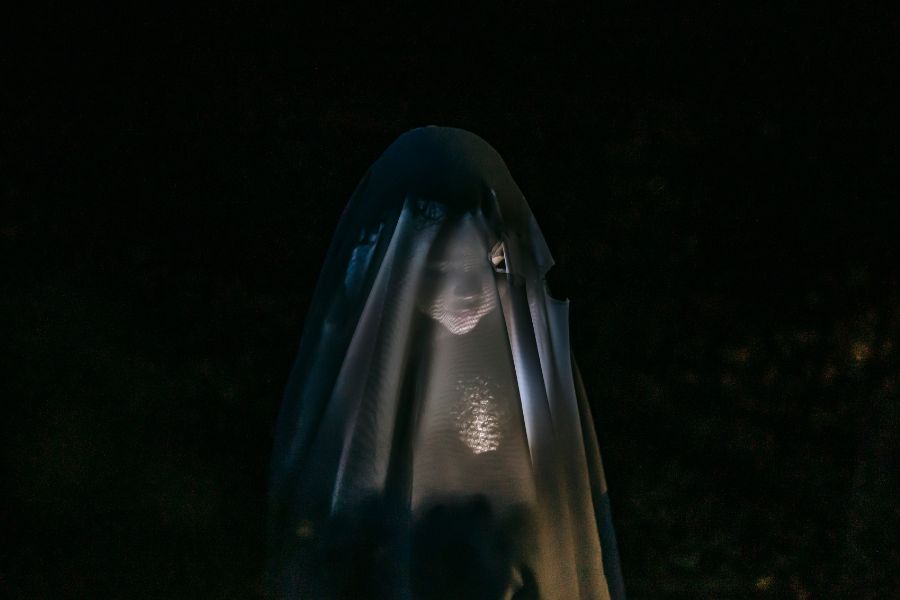Dreaming about ghosts can be a perplexing and unsettling experience, often symbolizing unresolved emotions, fears, or unfinished business in one’s life. These spectral visions may reflect feelings of vulnerability, anxiety, or a need to confront past issues, offering a window into the subconscious mind’s deepest concerns and desires.
Common Ghost Dream Scenarios

Different scenarios of dreaming about ghosts can carry varied meanings, often reflecting the dreamer’s emotional state and unresolved issues. For instance, being chased by a ghost typically symbolizes fear of unresolved problems, invoking feelings of anxiety and fear.
Encountering a friendly spirit may represent the presence of a comforting figure, bringing peace and reassurance. Seeing a white figure can signify purity or a message from the subconscious, evoking curiosity and awe.
Ghosts telling you to leave a place or chasing you might symbolize fears or anxieties holding you back in life, suggesting the need to confront these fears to move forward. Additionally, dreaming of sad or stuck ghosts could indicate unresolved emotions or past relationships that need addressing, highlighting the importance of finding closure.
These scenarios illustrate how ghost dreams are not random but are imbued with specific meanings and emotional significance.
Ghosts as Symbols of Unresolved Emotions
Ghosts in dreams frequently symbolize unresolved emotions or unfinished business, urging self-reflection and confrontation of inner conflicts. These apparitions can represent a desire to reconnect with departed loved ones or express deep-seated anxieties and inner turmoil.
Cultural interpretations vary, with some viewing ghost dreams as warnings or messages from the past, while psychological perspectives see them as manifestations of guilt, fear, or unresolved issues from one’s past. Understanding these dreams can provide insights into emotional upheavals and a path towards closure and emotional healing
Ghosts and Emotional Vulnerability
Ghosts often symbolize emotional vulnerability, reflecting unresolved traumas and fears that haunt individuals. These spectral figures can represent past emotional wounds that have not been fully addressed, manifesting as anxiety or discomfort in one’s current life.
For instance, ghost dreams may indicate a need to confront negative emotions head-on to regain control and emotional stability. Similarly, the phenomenon of ghosting in relationships, where one partner abruptly ceases communication, can leave the other feeling emotionally exposed and vulnerable, struggling to process the sudden abandonment and the emotional turmoil it causes.
Understanding these ghostly manifestations can help individuals navigate their emotional landscapes and seek healing.
Cultural Interpretations of Ghost Dreams
Cultural interpretations of ghost dreams vary significantly across different societies, often influenced by local folklore and beliefs. In many cultures, ghost dreams are seen as messages from the deceased, urging the dreamer to address unresolved issues or to heed warnings.
For instance, in some traditions, dreaming of a ghost can signify impending danger or misfortune, while in others, it may be viewed as a sign of spiritual presence or guidance. These cultural contexts imbue ghost dreams with specific meanings, reflecting the collective psyche and shared superstitions of the community
Is the Dream About Ghosts Good or Bad?
The interpretation of ghost dreams as good or bad largely depends on the context and emotions experienced during the dream. Ghost dreams often symbolize unresolved emotions or unfinished business, which can be unsettling but also offer an opportunity for self-reflection and emotional growth.
For instance, dreaming of a ghost attacking you may indicate feelings of vulnerability or fear of the unknown, suggesting a need to confront and manage these emotions. Conversely, seeing a ghost of a loved one might represent a desire for closure or a connection with the past, which can be a positive step towards healing.
Therefore, while ghost dreams can be distressing, they also provide valuable insights into one’s emotional state and can be a catalyst for personal development.
Coping After Ghost Dreams
After experiencing a dream about ghosts, it is essential to engage in self-care and reflection to process the emotions stirred by the dream. Consider what the ghost might symbolize, such as unresolved issues, past regrets, or fears that need addressing.
Engaging in activities like light exercise, meditation, or journaling can help alleviate the stress and anxiety caused by the dream. Connecting with friends or family members for support can also provide comfort and perspective.
Additionally, facing the fears represented by the ghosts in your dreams can empower you to overcome the anxieties holding you back in your waking life
